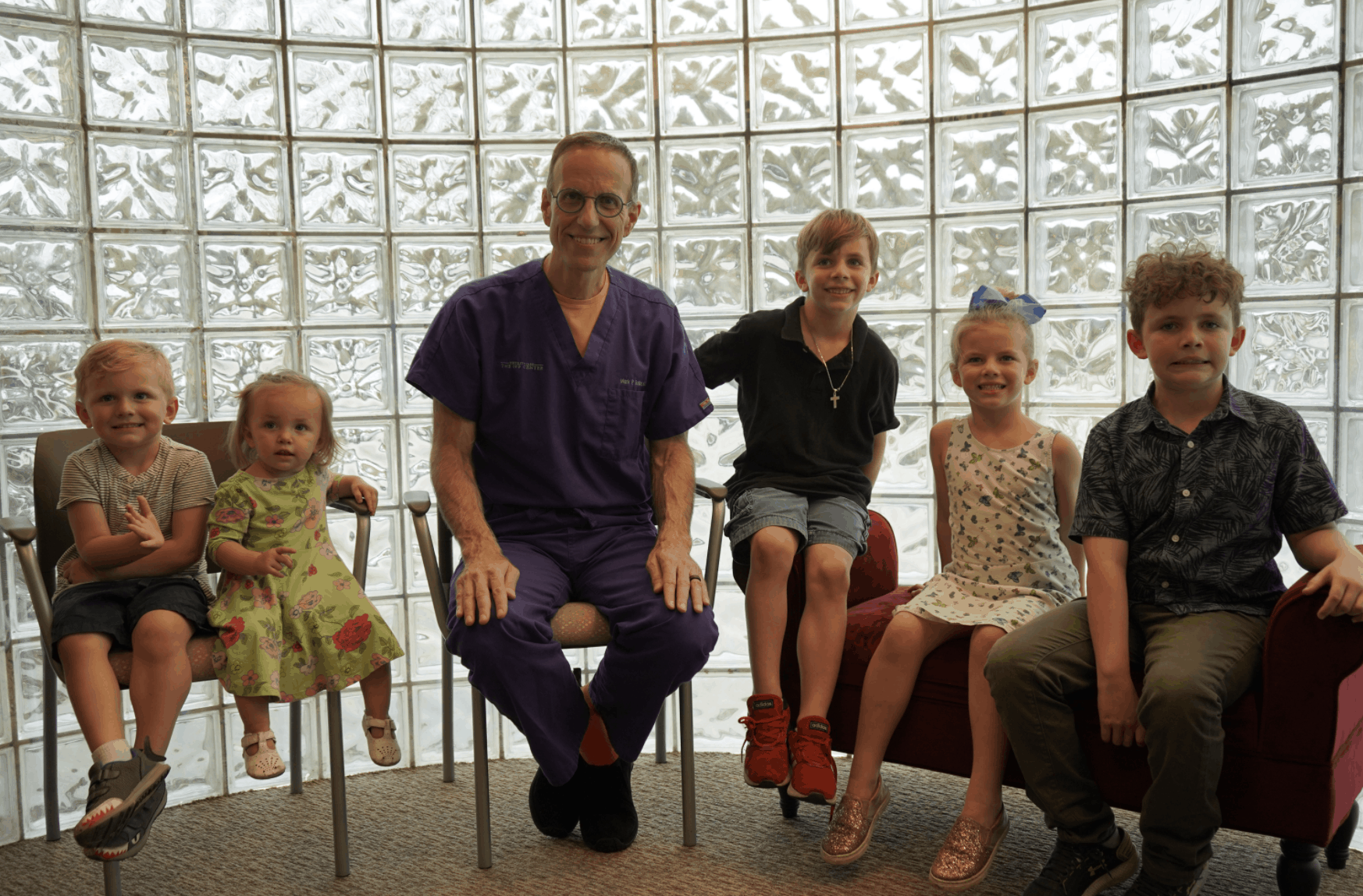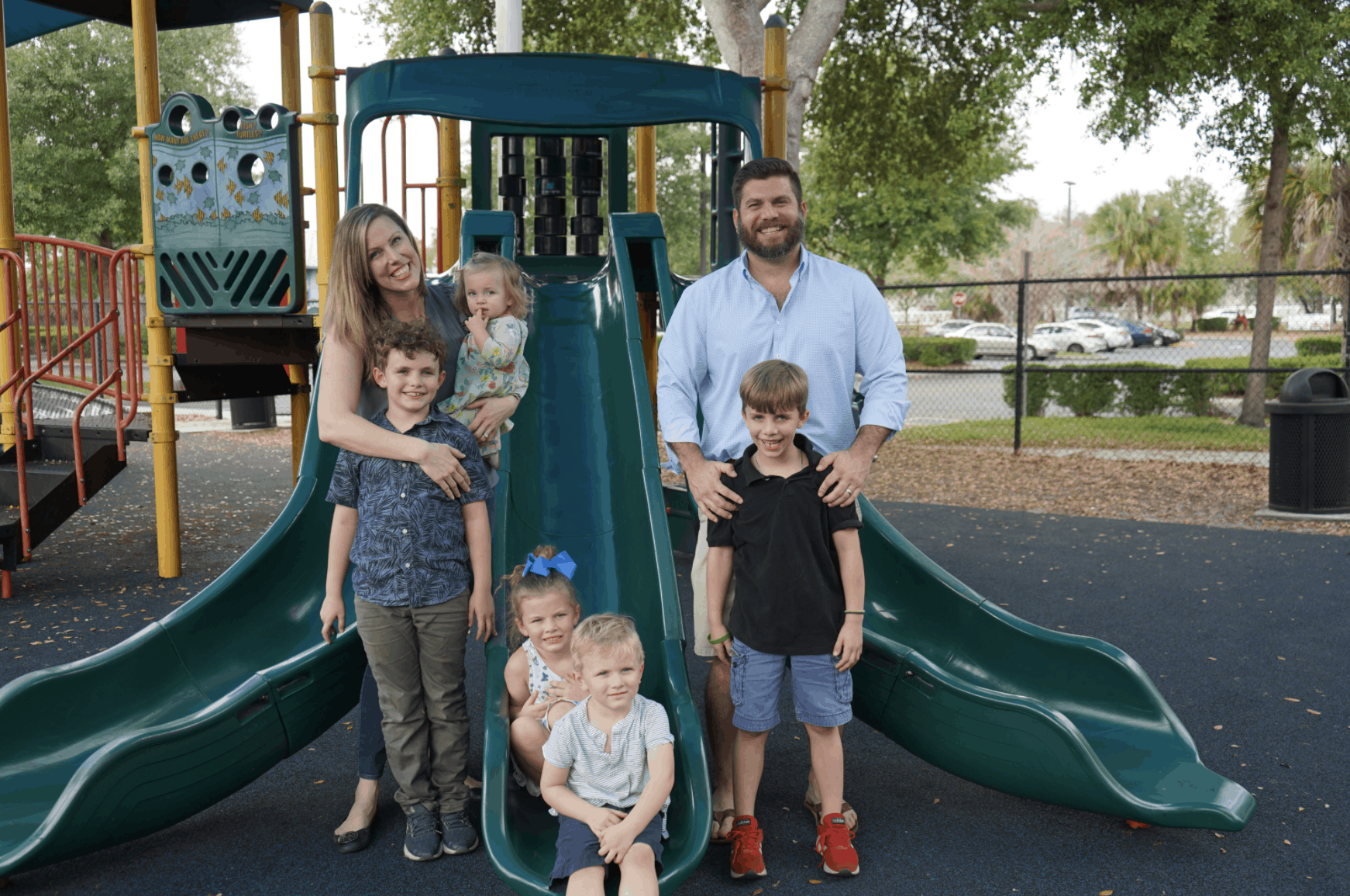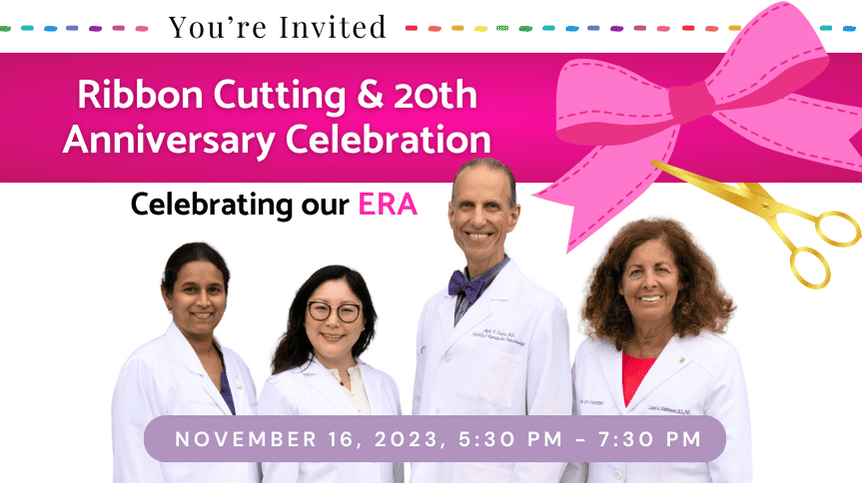Beth and Philip G. had known for years that they wanted a big family; but they also knew the cards were stacked against them because Beth suffered from a condition known as polycystic ovary syndrome (PCOS). After a year of ob/gyn visits, the young couple were finally referred to Dr. Mark P. Trolice at The IVF Center.
When the couple visited The IVF Center and met Dr. Trolice, Beth said, “I knew I could trust him. I knew he would come up with creative solutions to our infertility problems.”
Philip agreed, adding, “He took a lot of time to listen to us. He was a great partner in starting a family.”
After carefully reviewing the case and listening closely to the goals of the couple and their prior experiences, Dr. Trolice suggested a surgery called ovarian diathermy or drilling. The couple had been trying repeatedly for more than three years to start their family, but Dr. Trolice was cautiously optimistic, stating, “You have a very good prognosis to conceive within the year.”
Beth underwent laparoscopic ovarian drilling, which she describes as a “fairly easy procedure,” that had her resting in bed the afternoon of the surgery and then back to her normal activities the next day.
True to Dr. Trolice’s encouraging nature, Beth became pregnant within 30-days after the procedure.
Today, the couple has the family they always wanted, with five children, and they say they owe it all to Dr. Trolice and his team of central Florida fertility experts.
What is Polycystic Ovary Syndrome (PCOS)?
 PCOS is one of the most common reproductive hormonal health disorders affecting 6 to 20% of reproductive aged women in the US. Women with PCOS experience irregular signals of reproductive hormones that cause a lack of ovulation and an increase in the male sex hormone testosterone.
PCOS is one of the most common reproductive hormonal health disorders affecting 6 to 20% of reproductive aged women in the US. Women with PCOS experience irregular signals of reproductive hormones that cause a lack of ovulation and an increase in the male sex hormone testosterone.
To diagnosis PCOS, a woman needs to demonstrate two of these three issues:
- Ovulation dysfunction or irregular intervals between menstrual periods;
- Unwanted male pattern hair growth or elevated male hormone blood levels (e.g. testosterone);
- The ultrasound appearance of a large number of the normal tiny cysts on the ovaries that represent eggs or an enlarged ovarian volume (polycystic ovaries).
Women of any age past puberty can suffer from this condition.
What Are the Symptoms of PCOS?
 Women with PCOS often have abnormal bleeding and infertility from not regularly ovulating (releasing an egg). This makes it much more difficult, although not impossible in all cases, to get pregnant.
Women with PCOS often have abnormal bleeding and infertility from not regularly ovulating (releasing an egg). This makes it much more difficult, although not impossible in all cases, to get pregnant.
Other symptoms of PCOS disorder can include:
- Acne on the chest, face, or upper back
- Hair loss on the scalp
- Depression and anxiety
- Prediabetes/diabetes
- Elevated blood pressure
- Skin darkening along the neck, groin, or underneath the breasts
- Skin tags, or excess flaps of skin along the neck or in the armpits
- Too much hair on the face or other parts of the body where men grow hair
- Increased body mass index (BMI) with and increased waist size






